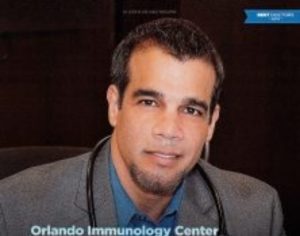What Is Hepatitis?
- What is hepatitis?
- Are there different types of hepatitis?
- What are the symptoms of hepatitis?
- How is hepatitis treated?
Hepatitis is a common liver condition that affects millions of Americans. The condition can be contracted from a wide range of causes, including viruses, alcohol use, drugs, or certain medical disorders.
Out of the millions of Americans living with this disease, many may not even be aware of their infection. Although sometimes appearing without symptoms, hepatitis can lead to serious liver disease, cancer, or even death, if left untreated.
Due to the risks involved, early diagnosis is critical for patients, offering potentially life-saving treatments to control their symptoms.
In this article, we’ll discuss the different types of hepatitis, what treatment options are available, and how individuals can adjust to living with this disease.

What Is Hepatitis?
Hepatitis is chronic inflammation of the liver. The liver is a vital organ that performs numerous critical functions, such as:
- Bile production
- Breaking down carbohydrates, fats, and proteins
- Enzyme activation
- Excreting bilirubin, cholesterol, hormones, and medications
- Glycogen, minerals, and vitamins storage
- Helping with blood clotting and blood proteins
- Filtering bodily toxins
All these functions are essential for your body, allowing your body to filter out toxins while circulating beneficial nutrients and hormones that keep you healthy.
However, inflammation or damage to the liver, such as hepatitis, can interrupt these functions, making it harder for the body to process nutrients and recover from illness.

Are There Different Types of Hepatitis?
There are five primary types of viral hepatitis, classified as A, B, C, D, and E. In the United States, the most common types of hepatitis are A, B, and C.
Hepatitis A is spread through a viral infection, typically through contact with another infected person. It causes fatigue, jaundice, nausea, and stomach pain, which can last up to two months. Fortunately, hepatitis A can be prevented with a vaccine.
Hepatitis B is found in the blood, semen, or other bodily fluids of infected people. The virus can spread through sexual contact, sharing needles, or even from a mother to her baby during birth. Many people who contract hepatitis B are asymptomatic. However, if symptoms do occur, hepatitis B causes fatigue, jaundice, nausea, poor appetite, and stomach pain.
Hepatitis C is spread through the blood of an infected person. The majority of cases today are caused by sharing needles or other paraphernalia used to inject drugs. Hepatitis C can either be a short- or long-term chronic illness. The chronic form of the disease can cause serious and life-threatening illnesses such as liver cancer or cirrhosis. There is no vaccine for this disease, but medication such as Harvoni, Olysio, Ribavirin, and Viekira Pak can help treat symptoms and prevent transmission.
Hepatitis D only infects people already carrying the hepatitis B virus. It is transmitted by blood and bodily fluids and can cause severe illness that can lead to serious liver damage and death. However, it can be prevented with the vaccine that also prevents hepatitis B.
Hepatitis E is transmitted through the stool of an infected person. It can spread when a microscopic amount is ingested, a problem in developing countries with an unsafe drinking water supply. In the U.S., the disease can be transmitted through raw or undercooked pork, shellfish, venison, or wild boar meat. Many people have no symptoms of hepatitis E. In cases where symptoms manifest, they can include fatigue, jaundice, nausea, poor appetite, and stomach pain. There is no specific antiviral medication to treat or cure this disease.

What Are the Symptoms of Hepatitis?
Depending on the type of hepatitis and the health of the infected person, symptoms may vary greatly. However, one of the most common symptoms of hepatitis is fatigue.
In many cases, patients may experience overall feelings of weakness and lack of energy, which can be debilitating. Additionally, patients may experience loss of appetite, nausea, and vomiting. These symptoms can lead to weight loss and malnutrition if left untreated.
Hepatitis can also cause jaundice, a condition in which the skin and whites of the eyes become yellow. This occurs when the liver is unable to properly filter bilirubin, a waste product produced by the breakdown of red blood cells. Other symptoms of hepatitis may include dark urine, pale stools, and abdominal pain.
In some cases, patients with hepatitis may not experience symptoms at all. This is particularly true in cases of chronic hepatitis, which can go undetected for years. For this reason alone, patients should receive regular blood tests to screen for the disease, especially if you are at risk due to factors such as intravenous drug use or unprotected sex.
It is also important to recognize the symptoms of hepatitis early on, as early detection and treatment can prevent serious complications such as liver failure and liver cancer.
Overall, the symptoms of hepatitis can be varied and may not always be obvious. If you suspect that you may have hepatitis, it is important to seek medical attention immediately to receive a proper diagnosis and treatment.

How Is Hepatitis Treated?
All types of hepatitis can be treated, but only hepatitis A and C can be cured. In rare cases, people with hepatitis B may recover without long-term liver damage, but some may develop liver diseases, including cirrhosis, liver cancer, or liver failure. Hepatitis D can be prevented with a vaccine that also prevents hepatitis B, while no specific antiviral medication exists to treat or cure hepatitis E.
Hepatitis C is the most common form of the disease in the United States and is treatable with antiviral medications.
Thankfully, up to 25% of patients with acute hepatitis C may also recover without treatment—however, the remaining 75-85% of patients will develop a chronic infection that can lead to liver damage, cancer, and liver failure. Additionally, many people may not experience noticeable symptoms, making the infection difficult to diagnose and easier to spread.
To diagnose viral hepatitis, doctors typically conduct a physical exam and may order a sonogram or CAT scan along with a liver biopsy to confirm the diagnosis. Symptoms of the hepatitis infection may include clay-colored or pale stools, dark urine, fatigue, loss of appetite, nausea, low-grade fever, jaundice, or the yellowing of skin and eyes, and stomach pain. If you experience any of these symptoms, see your doctor for a blood test.
Over the past few years, excellent treatments have been developed for both hepatitis B and C, and researchers continue to work hard to develop new and better treatments.
The Orlando Immunology Center is committed to providing the best treatments to combat hepatitis and other diseases in collaboration with primary and specialty physicians.
Contact us to find out how we can help.
More Articles
Dr. DeJesus Recognized by Orlando Magazine
For the 5th consecutive year, Dr. DeJesus has been recognized by his peers in Orlando Magazine for his work as medical director at Orlando Immunology Center. Dr. DeJesus is a graduate from the University of Puerto Rico, School of Medicine. He completed his Internal Medicine training and Infectious Disease fellowship at the Medical College of…
Read MoreJoin OIC at the 2015 AIDS Walk Orlando
Orlando Immunology Center is pleased to announce that we will again be sponsoring a team at this year’s 2015 AIDS Walk Orlando. If you are interested in joining our team or donating to this worthwhile cause, please let us know. Saturday, March 28, 2015 In Florida, 15% of all new HIV infections reported among females…
Read MoreOIC Wins Wave Award for Favorite Local Healthcare Professional
The Orlando Immunology Center (OIC) announced today they have received the Central Florida/Orlando 2015 Watermark Awards for Variety and Excellence (WAVE) Award for favorite local healthcare professional. “We see this as a huge honor and will continue to do everything in our power to help patients from all walks of life be healthy, happy and…
Read MoreDr. DeJesus Recognized by Orlando Magazine
For the 5th consecutive year, Dr. DeJesus has been recognized by his peers in Orlando Magazine for his work as medical director at Orlando Immunology Center. Dr. DeJesus is a graduate from the University of Puerto Rico, School of Medicine. He completed his Internal Medicine training and Infectious Disease fellowship at the Medical College of…
Read MoreJoin OIC at the 2015 AIDS Walk Orlando
Orlando Immunology Center is pleased to announce that we will again be sponsoring a team at this year’s 2015 AIDS Walk Orlando. If you are interested in joining our team or donating to this worthwhile cause, please let us know. Saturday, March 28, 2015 In Florida, 15% of all new HIV infections reported among females…
Read MoreOIC Wins Wave Award for Favorite Local Healthcare Professional
The Orlando Immunology Center (OIC) announced today they have received the Central Florida/Orlando 2015 Watermark Awards for Variety and Excellence (WAVE) Award for favorite local healthcare professional. “We see this as a huge honor and will continue to do everything in our power to help patients from all walks of life be healthy, happy and…
Read MoreDr. DeJesus Presented the Chuck Hummer, III, Visionary Award
Congratulations to Dr. DeJesus for winning the Chuck Hummer, III, Visionary Award presented at this year’s Headdress Ball benefiting Hope and Help Center of Central Florida, Inc. The award is given annually to individuals in the community who have made a difference in the fight against HIV/AIDS. OUR TEAM REQUEST AN APPOINTMENT
Read More8 Ways You Can Protect Your Liver When You’re Living With Hepatitis C
Hepatitis C is the leading cause of severe liver disease and liver cancer, both of which can be fatal. So, what are some of the ways you can protect your liver when you’re living with hepatitis C? To keep your liver healthy when living with hepatitis C, the most important thing to do is to…
Read MoreDr. DeJesus Orlando Sentinel Interview About Actor Charlie Sheen
Dr. Edwin DeJesus was recently interviewed by the Orlando Sentinel about well-known actor Charlie Sheen, confirming that he was HIV-positive. To read the full article click here or click the image below. OUR TEAM REQUEST AN APPOINTMENT
Read MoreDr. Edwin DeJesus Included on Best Doctors 2015 List by Orlando Magazine
Dr. DeJesus was recently voted “Best Doctors 2015” by Orlando Magazine. The Best Doctors in America® List includes the nation’s most respected specialists and outstanding primary care physicians in the nation. These are the doctors that other doctors recognize as the best doctors in their fields. They cannot pay a fee and are not paid…
Read MoreWhat to Expect On Your First STD Screening
Let’s face it. Going for your first STD screening can be a bit nerve-racking, but knowing your status doesn’t have to be scary! To put your mind at ease we provide tips on when you should get tested and what to expect at your first screening. Should I Get Tested? If you experience any symptoms…
Read More5 Things You Should Know About PrEP
PrEP stands for pre-exposure prophylaxis and is a preventative option for people who do not have HIV, but are at a high risk of contracting HIV. The word “prophylaxis” means to prevent or control the spread of an infection or disease. PrEP is a pill that contains two medicines that are also used to…
Read MoreCDC Confirms That The Zika Virus Can Be Sexually Transmitted
If you’ve consumed any piece of news in the last week, you may have heard about an outbreak of the Zika virus. Warnings urged pregnant women to avoid travel to areas with a large number of cases due to possible birth defects. It was originally believed that the Zika virus could only be transmitted from…
Read More










